Why Can’t I Lose Weight No Matter What I Do? Guide to Win Your Battle Against Weight Loss
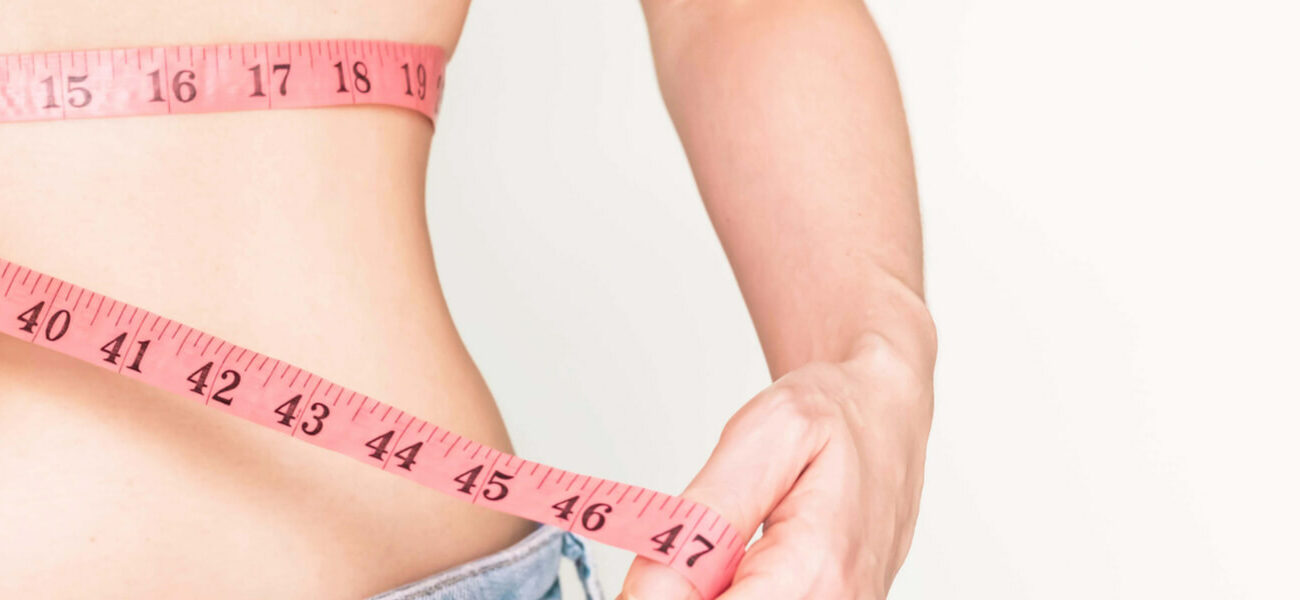
The road to weight loss success can often be frustrating, especially when you don’t see the results you desire. You may have tried everything, but the number on the scale won’t budge. You’ve gone to the gym, counted calories, and even made healthy lifestyle changes.
So that leaves you with a question, “Why can’t I lose weight no matter what I do?” It’s common to feel like you are the odd one out. Everyone else seems to be able to shed pounds, but for some reason, it just isn’t happening for you.
But no matter how frustrating weight loss can be, the best thing you can do for yourself is to realize that there are many possible explanations for why you’re struggling to shed the extra pounds. It could be your diet, lack of exercise, or even a medical condition.
In this article, we will explore the main reasons why you’re struggling with weight loss and tips to fast-track it.
Struggling to Lose Weight? 3 Common Reasons
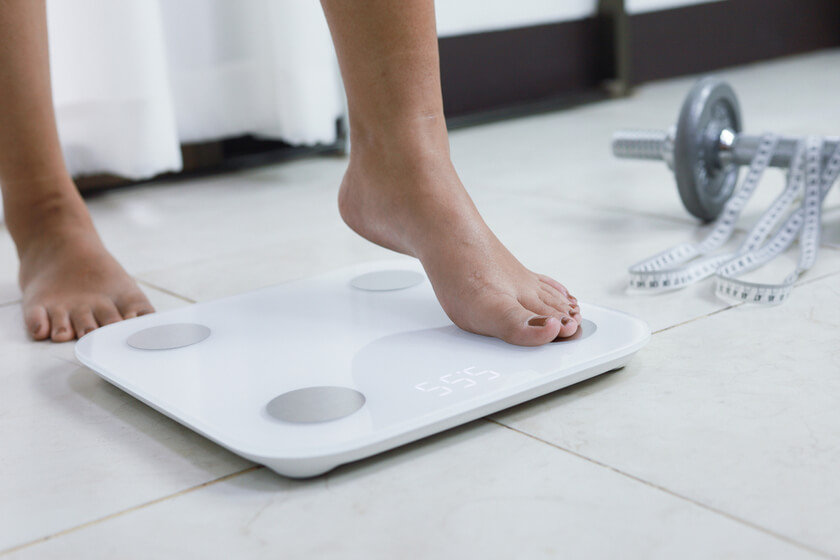
Advertisement
The human body is a complex biological machine, and your weight can be affected by many dietary or lifestyle factors other than fat. There’s no one-size-fits-all solution to the problem.
It could be something as simple as having a bad night’s sleep, or it could be something more complex such as hormonal imbalance or an underlying medical condition that needs to be discussed with your doctor or nutritionist.
If you feel like you’re not making any progress – or worse, gaining weight – don’t throw in the towel yet; here are the most common causes of a stalled weight loss.
#1 You Have an Underlying Health Condition
- Lipedema: This condition is characterized by a disproportionate amount of fat deposits in the upper legs and buttocks, typically in a V shape. People with lipedema have an estimated average body fat percentage of 45.5%, which makes it extremely difficult to lose excess fat without addressing this condition.
- Polycystic ovary syndrome (PCOS): The syndrome can cause insulin resistance that leads to increased abdominal fat, which, in turn, produces hormones that may increase appetite. This condition affects up to 21% of reproductive-aged women, making it hard to even lose as little as 20 pounds because the body is constantly in “storage” mode due to the excess hormones.
- Hypothyroidism: A common condition that slows the body’s metabolism down. As a result, some people with the condition don’t burn calories as efficiently as they should. This is particularly problematic when dieting because you may not be eating enough to ensure healthy weight loss.
- Chronic stress: When you suffer from anxiety, stress, or grief, your body often produces certain chemicals such as cortisol (also called “stress fat”) that can make you gain weight, especially around the waist. This type of weight gain can increase your risk of serious health conditions, such as diabetes and heart disease.
#2 You’re Growing Older – and Losing Muscle
When women reach menopause – between 45 and 55 years old – their estrogen levels begin to fall, triggering a gradual decline in muscle mass. In fact, after age 30, most women will lose about 3–5% of their muscle mass per decade.
With less muscle tissue to metabolize glucose and produce energy from protein and carbohydrates, your metabolism slows down – or insulin levels rise – which can result in extra fat storage.
#3 You’re Stuck In a Vicious Yo-Yo Diet Cycle
Yo-yo dieting is also known as “weight cycling” and refers to the pattern of losing and regaining weight over a quick succession of time. It is a form of weight loss resistance – when your body makes fat storage a priority over energy expenditure, making it increasingly difficult to shed pounds.
Fad diets, extreme calorie restriction, binge eating, sugar cravings, and other unhealthy habits associated with the yo-yo diet can leave your body depleted of essential nutrients needed for optimal health. As a result, those who yo-yo diet repeatedly have more trouble losing weight than ones who maintain a more consistent weight.
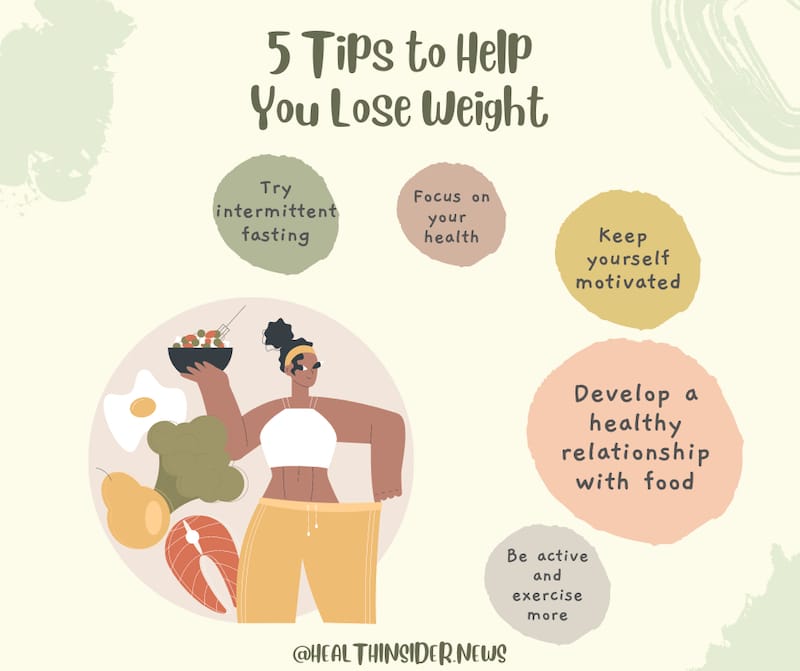
Can’t Lose Weight No Matter What? 5 Helpful Tips to Get Over It
#1 Develop a Healthy Relationship With Food
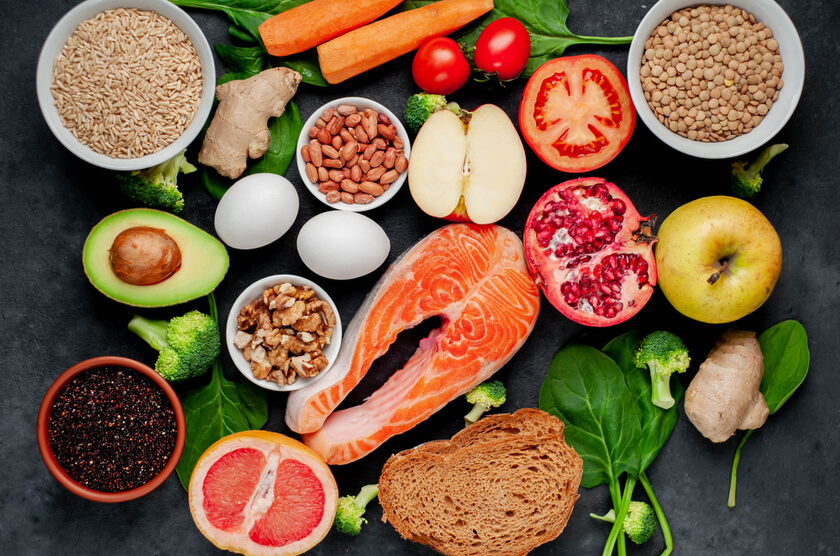
Most people have an unhealthy relationship with food. They live off of junk food and sweets, completely missing out on nutrient-dense foods like leafy greens, fruits, and lean proteins.
Once you start seeing healthy food as your friend instead of your enemy, it will be easier to stop snacking on vending machine candy bars and fast-food fries.
Remember, if you don’t treat your body well, it won’t treat you well in return. Focus on eating plenty of vegetables, whole grains, lean protein sources (fish and chicken), healthy fats (olive oil), and nuts/seeds/legumes (the fiber in these foods helps keep you full). Also, remember that sometimes weight loss is slowed by dehydration or lack of electrolytes, so when trying to lose weight, do not restrict fluids!
#2 Focus On Your Health
Your weight is not a measure of success – it’s just a number. When you’re obsessed with weight, you don’t make smart decisions about your health. On the contrary, when you shift your focus from dieting and restriction to optimizing your health, it changes your attitude and motivation. This shift in mindset focuses on cooking nutritious meals, drinking more water, finding fun ways to exercise, and truly enjoying wellness.
If you have an underlying medical condition preventing you from reaching your goals, don’t rely on self-experimentation to improve your health. It is advised to consult your doctor first before trying any new health regimen and gain nutrition guidance specific to your condition.
#3 Try Intermittent Fasting
A dietary pattern that cycles between periods of eating and fasting, intermittent fasting (IF)
allows you to eat all you want while encouraging your body to burn fat. Based on scientific research and real-world experiences, IF is a proven approach to weight loss that resets your metabolism so you can burn more fat, improve your health, and feel better than ever!
There are a variety of intermittent fasting protocols, but they all require you to limit eating in a certain window each day – typically 6 hours. That means if you eat breakfast at 7 AM, you should stop eating anything at around 1 PM. Some people prefer 3–4 smaller meals within that time frame, while others prefer doing one longer two-meals-per-day fast.
If you are plagued with constant cravings, DoFasting could be the perfect solution for your predicament. This app makes it easy for you to track when you are going on or off fasting with a custom-tailored calculator.
With DoFasting, you’ll be more in tune with your daily hunger levels, which, in turn, should motivate you to reach your weight loss goals. It’s one of the best fasting apps in the market, too!

Your Personal Intermittent Fasting App
- Progress tracker and calendar
- Calorie tracker
- More than 5,000 healthy recipes
- Training routines
- Daily motivation and tips
- Water intake targeting
- Daily caloric intake tracker
#4 Be Active and Exercise More
In order to lose weight, you need to burn more calories than you consume. In other words, you need a negative energy balance. People who struggle with losing weight often have an energy imbalance where they are not expending enough calories in their everyday activities and are eating more calories than they are burning off.

This will lead to that frustrating plateau where you don’t see any changes on your scale despite watching what you eat. Fret not, all you have to do is ramp up your activity levels. You can go for a walk, run for weight loss, lift weights, or take a ride on your bike. Go outside and enjoy the fresh air and sunshine. Or pump up the volume at home with a Zumba class.
Short on time? Joggo App is your trainer for a quick 10–30-minute running workout with no equipment. The app focuses on exercising as part of your everyday life. Not to mention, it keeps track of your activity during the day and helps you track your progress at the same time.
#5 Keep Yourself Motivated
When you’re trying to lose weight, there are plenty of moments when it can feel like all hope is lost. After a few days, you might even forget why you started dieting in the first place! It’s easy for motivation to fade when results aren’t seen quickly enough or at all.
These feelings can make staying motivated harder than it already is, but don’t give up. Stay disciplined. Make small goals and reward yourself along the way. In time, your efforts will become habits, and those habits will turn into results. Eventually, weight loss resistance will no longer be an issue for you.
Looking for some extra motivation in your pursuit to meet your weight loss goals? Beyond Body is your personal diet book with tips and strategies tailored to your custom preferences. Start losing weight today with a convenient way to access simple and practical diet tips.

A revolutionary way to wellness
- Personalized meal plan
- Personalized educational content
- Extensive information about your body, health, nutrition requirements
- Personalized strategies
- Unique daily routines
- Recovery plan after breaking your healthy routine
- Personalized lessons on how to lead a healthy lifestyle without making any sacrifices
Diets Don’t Work? Then Avoid These 5 Products
Not all foods are good for weight loss, and some should be avoided altogether if you want to be successful in shedding some pounds. Here are five foods that will reduce your weight loss efforts and make things worse for your waistline.
#1 Sugary Drinks
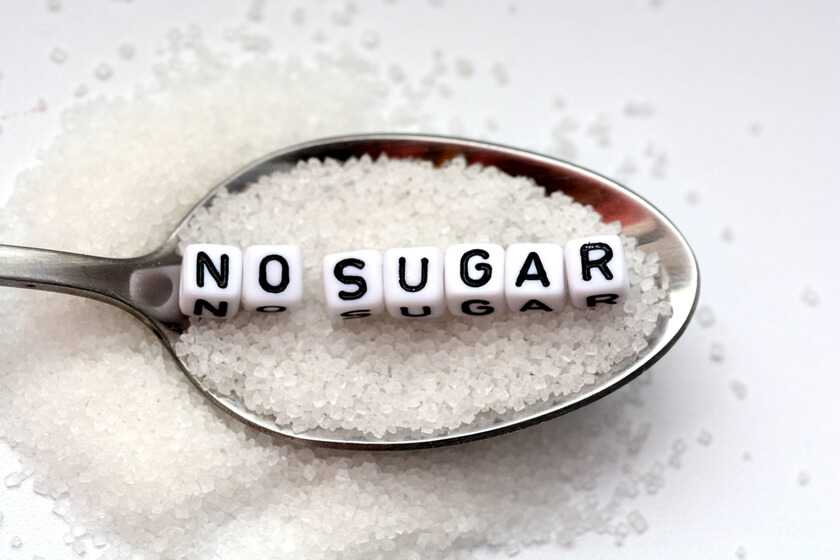
When it comes to weight loss, sugary drinks are a big no-no. A diet rich in sugary drinks has been linked to obesity, as well as an increased risk of diabetes and heart disease. Sugary beverages are often liquid calories that don’t satiate hunger, and they cause spikes in blood sugar that can lead to weight gain over time.
Added sugar also increases your risk of metabolic syndrome, which is associated with abdominal fat and elevated cholesterol. If you have an unhealthy dependence on sugary drinks like juice, soda, and sports drinks, it may be time to kick your habit to the curb and replace it with water or a healthier alternative – and potentially see some weight loss in return.
#2 Highly Processed Foods
If you’re struggling to lose weight and feel like nothing seems to be working, it might be time to take a good hard look at your diet. A study indicates that dieters are much more likely to shed pounds when they cut out processed foods from their menu – and lean toward eating unprocessed healthy foods instead.
Processed foods contain things like artificial sweeteners, preservatives, and other additives that can mess with your hormones and cause weight gain. They’re loaded with sugar, salt, and fat, which have been shown to stimulate excess calorie consumption and prevent your body from feeling full. Also, they are stripped of many nutrients.
#3 Starchy Vegetables
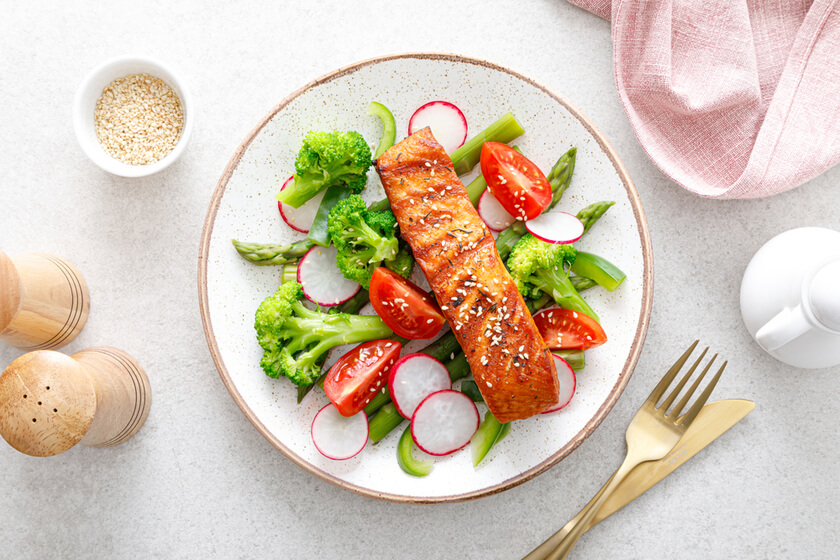
Vegetables are fantastic foods that can support your weight-loss goals, but some are calorie-dense veggies that should be consumed in moderation. Starchy vegetables such as potatoes, carrots, and corn all contain a lot of calories – and they aren’t necessarily great at filling you up either.
While these vegetables are healthy and rich in essential nutrients and fiber, they also happen to be very high in carbs. Instead of these veggies, you can always incorporate non-starchy veggies into your diet such as broccoli and spinach that can help you shed weight without feeling hungry. In fact, you can speed up your weight loss journey in a couple of weeks by following a low-carb diet.
#4 White Flour
Many packaged food products contain white flour, including crackers, chips, cereals, and baked goods. White flour is essentially a refined grain, meaning it’s been stripped of all nutritional value. When consumed regularly in large quantities, white flour can cause you to gain weight by raising your insulin levels and keeping you hungry.
Besides adding inches to your waistline, refined carbs such as white flour may aggravate pre-existing health conditions like diabetes. While there are proven methods to manage diabetes, it’s best to swap out some of your foods that contain white flour with whole-grain alternatives, like barley, oats, or brown rice.
#5 Alcohol
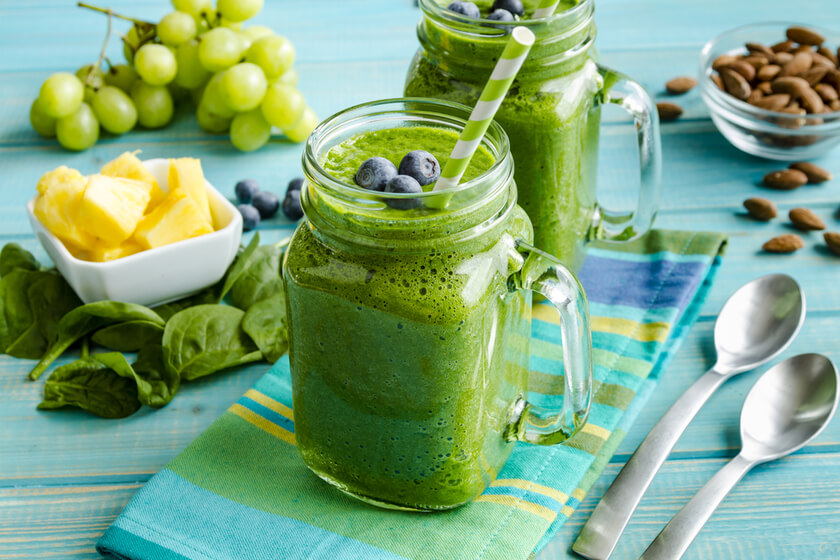
If you want to lose weight quickly, reducing alcohol consumption is a great place to start. Alcoholic beverages are pure liquid calories – and they add up fast. In fact, a single beer can have over 150 calories! And when consumed in excess, alcohol promotes fat storage and impairs body composition.
In addition to its high-calorie content, alcohol also inhibits our brain’s natural impulse to stop eating. A study published in Biological Psychiatry found that people who were given small doses of alcohol before being served a meal ended up consuming 16% more calories than those who didn’t drink. Instead, why not resort to drinking a glass of green smoothies that helps get your dream body?
A Word From our RD
The modern “I’m on a diet” mentality leads people to think that in order to lose weight, they need to follow very strict dietary guidelines. While reducing caloric intake and increasing physical activity is certainly part of any successful weight-loss plan, creating an environment of deprivation doesn’t make you more likely to be successful.
Instead, it can increase your hunger levels – and your desire for all things forbidden – making it even harder for you to succeed in losing weight. Remember: the most effective weight loss strategy isn’t a diet. It’s learning how to manage your calories effectively and make healthier food choices.
For instance: people who consistently eat whole grains, lean protein sources, fruits, and vegetables typically have fewer overall calories than those who eat more processed foods high in refined grains or added sugar.
The Bottom Line
There are several reasons why you might not be able to lose weight despite a good diet and exercise. It can be genetics, physical or psychological factors that make it difficult to lose weight.
However, there are effective tips that can be implemented to help you get back on track. Whatever the reason may be, focus on figuring out how to overcome these obstacles.
P.S. Not sure what to eat? Try these healthy snacks!

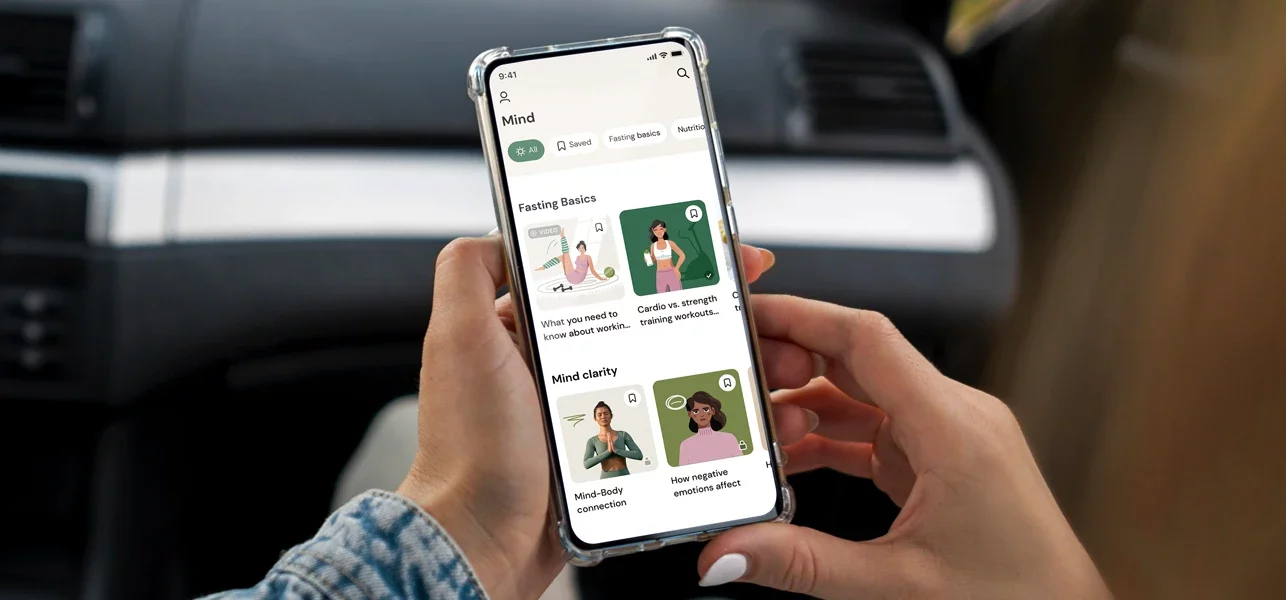





Comments (0)